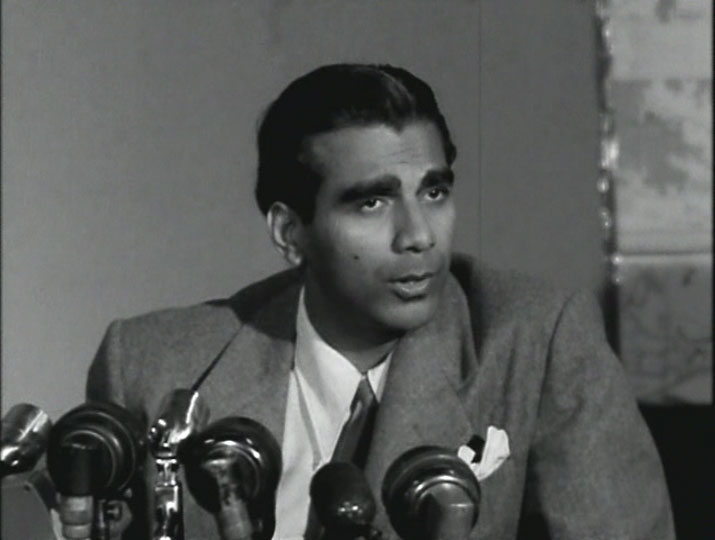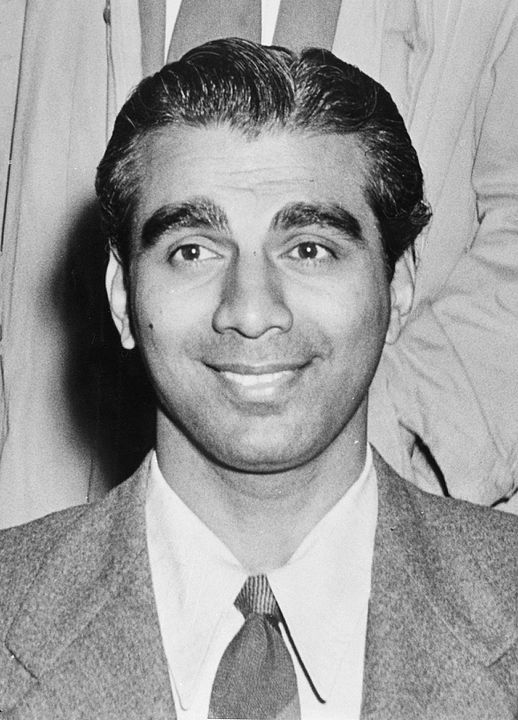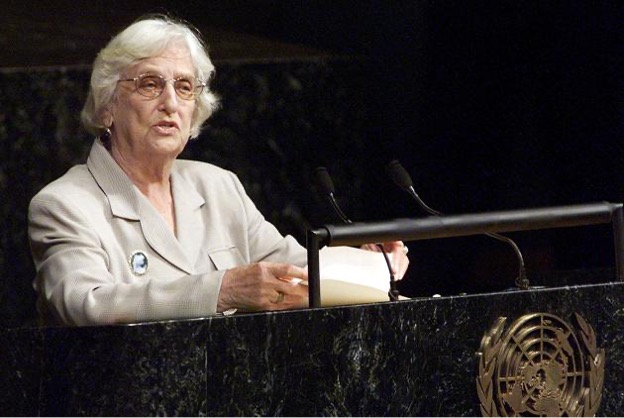
John Prados and Arturo Jimenez-Bacardi publish declassified documents from the U.S. Digital National Security that explore this little-known political coup in South America, entitled “The Overthrow of Cheddi Jagan in British Guiana.”

New York, N.Y. One of my mentors, Dr. Cheddi Jagan, was prime minister of Guyana. He had spent time in jail for defying the British colonial government in the early 1950’s and then been overthrown by America’s CIA in the early 1960’s.
As I began to explore creating Orphans International Worldwide in the mid-1990’s, Cheddi invited me to create a Peace Corps-like structure to bring aid and expertise to Guyana.
In 2020, John Prados and Arturo Jimenez-Bacardi published declassified documents from the U.S. Digital National Security that explored this little-known political coup in South America, entitled “The Overthrow of Cheddi Jagan in British Guiana” with excerpts below:
Cold War concerns about another Communist Cuba
Cold War concerns about another Communist Cuba in Latin America drove President John F. Kennedy to approve a covert CIA political campaign to rig national elections in British Guiana, then a British colony but soon to be independent, according to declassified documents posted today by the National Security Archive.
U.S. intelligence concluded that Prime Minister Cheddi Jagan, one of the main presidential candidates in the upcoming 1964 elections, was a Communist, although not necessarily under the sway of Moscow.
Nevertheless, Kennedy decided Jagan would have to go and urged London to cooperate in the effort. As early as mid-1962, JFK informed the British prime minister that the notion of an independent state led by Jagan “disturbs us seriously,” adding: “We must be entirely frank in saying that we simply cannot afford to see another Castro-type regime established in this Hemisphere. It follows that we should set as our objective an independent British Guiana under some other leader.”
Cheddi Jagan was a dentist. Born of Indian immigrants who arrived in British Guiana as indentured servants, Jagan studied in Georgetown, Guiana’s capital, Washington, D.C., and Chicago, where he completed training. He also met and married Janet Rosenberg in Chicago, returning to South America in 1943, at age 25.
Jagan’s background inclined him to Socialism from the beginning. In 1946 he founded a political action committee, which he merged with another group in 1950 to form the People’s Progressive Party (PPP).
Linden Forbes Burnham, the head of that other group, served initially as the new party’s leader and Janet Jagan as secretary. Jagan, already a member of the British-sponsored legislative council, obtained a PPP majority in 1953 elections and then led a Guianese government under British tutelage.
The British imprisoned Cheddi Jagan
Though there were no apparent links between Jagan and any Marxist party, the British government suspected and pressured him, and Jagan resigned after 150 days. The British abolished his office of chief minister and for seven years kept Guiana under military occupation. They made Jagan a political prisoner.
When released, Jagan was restricted to Georgetown, but nevertheless won the majority of seats in a new council elected in August 1957. Forbes Burnham took a faction out of the PPP to form the People’s National Congress (PNC) a few months later. But Jagan was the acknowledged national leader and in new elections, held in August 1961, the PPP again swept him to power. Cheddi Jagan became prime minister.
Already that March, a CIA estimate, anticipating those elections, predicted the PPP would probably get the nod to form a government, and said of Jagan that while he was not an acknowledged communist, his wife was, and his statements and actions bore the marks of communist influence.
This background shows the U.S. concerned with Jagan’s political orientation almost from the moment he emerged as Guianese leader, and it also introduces political competitor Forbes Burnham, who would become the CIA’s instrument against Cheddi Jagan in the project Kennedy mounted.
Indeed, on May 5, 1961, at a National Security Council (NSC) meeting which considered new covert actions against Cuba and the Dominican Republic, the group agreed to have its Cuba task force look for ways (in cooperation with London) to forestall a communist takeover of British Guiana.
The Guianese leader was aware that others harbored suspicions of him
Jagan arranged a visit to the United States and Great Britain for the end of October. The State Department announced he would meet with President Kennedy. The meeting was scheduled for October 25, and a briefing memo for the president was prepared. President and prime minister sparred at their meeting but no open break occurred, as Jagan represented himself as a socialist in the style of British politician Aneurin Bevan, though American participants found him evasive on matters of detail.
Secretary of State Dean Rusk wrote Lord Home calling for “remedial steps” to counter Jagan’s “Marxist-Leninist policy” and adding that “I have reached the conclusion that it is not possible for us to put up with an independent British Guiana under Jagan.” At the White House, Schlesinger countered that Cheddi Jagan was not a communist but a naïve “London School of Economics Marxist filled with charm.” British official views mirrored those Schlesinger expressed. London resisted moving against Jagan.
President Kennedy held in place for the moment, more impressed by the case put by London than by Foggy Bottom. The CIA acknowledged that Jagan was not under Soviet control but that the “PPP leadership” had a clear record of “communist-line policies” and that Jagan was a Communist.
The CIA estimates answered two of President Kennedy’s three key questions—A Jagan administration could be expected to follow a non-aligned foreign policy to some degree friendly to the communist bloc.
During May 1962 President Kennedy and British Prime Minister Harold Macmillan held direct talks, while the Guianese opposition leader Forbes Burnham visited Washington. These meetings cleared away some of the obstacles to covert action.
Senior officials decided Forbes Burnham’s socialism was preferable to whatever-it-was that Jagan believed. Equally important, the British decided to delay independence, leaving an opening for a CIA operation. One key indicator of the crumbling of opposition to a covert operation would be when Arthur Schlesinger told Jack Kennedy that a Forbes Burnham government would cause many fewer problems for the U.S. than one led by Cheddi Jagan.
In 1962 there was no CIA station in British Guiana
In 1962 there was no CIA station in British Guiana, and even British counterintelligence was represented only by a regional officer. The agency recruited an expatriate psychiatrist whose brother was an aide to Forbes Burnham, and CIA officer Joseph B. Smith met the man in Barbados, training him in secret writing and other tradecraft. This was the link that led to Burnham’s Washington visit. That visit gave the CIA the opportunity to inform the Guianese leader that the U.S. was considering action against Jagan, to which Burnham readily agreed.
Cheddi Jagan was not blind to the forces gathering against him. As early as April 1963 he had written at length to President Kennedy, arguing his position and asking for Arthur Schlesinger to visit. Kennedy was noncommittal.
The Guianese government maintained a public information office in New York City, pretty much inactive in 1962, but which suddenly erupted with materials arguing against elections before independence.
Jagan unsuccessfully tried to meet with U.S. ambassador Adlai Stevenson on the sidelines of the 1963 U.N. General Assembly. When London went ahead to set the table for the elections, Prime Minister Jagan obtained, as he understood it, assurances from Forbes Burnham that a coalition would be acceptable, and approved only on that basis.
John Kennedy’s assassination and the advent of President Lyndon B. Johnson did not alter Washington’s stance toward British Guiana. Talks with the British and Canadians in December 1963 gave Washington the opportunity to advocate for that.
Around the turn of the year the CIA had moved to start a political party among Cheddi Jagan’s own East Indian ethnic group in order to draw off PPP support. In 1964 this operation got underway. The Americans also got Forbes Burnham and Peter d’Aguilar to agree on mutually supportive measures.
U.S. money financed campaign activities, with leaflets, political buttons, and other paraphernalia
U.S. money financed campaign activities, with leaflets, political buttons, and other paraphernalia, some of it produced in the United States and delivered free—as were advertising slogans and marketing tactics. Labor operatives, some Latino interns, and even some campaign workers were paid by the U.S., and Bundy had also approved paramilitary training for some PNC cadres.
Forbes Burnham pretended to cooperate but dragged his feet with allies all around. His PNC was also violent. Police Special Branch had collected evidence on PNC political violence back to 1962. As home minister the reports would have gone to Janet Jagan, so Cheddi’s protestations of ignorance in the fall of 1964 rang hollow. And there was reciprocal PPP violence to take into account.

Violence Ensued
A United Front activist even suggested a coup d’état be mounted against the Jagan government. By the summer, houses were being torched at a rate of five or more a day. More than 2,600 families (15,000 persons) had been forced from their homes. The political season brought nearly two hundred murders and a thousand persons wounded. That was real violence.
Cheddi Jagan, Forbes Burnham, and Peter d’Aguilar were actually conferring one day in August 1964 on tamping down the violence when, down the street, the PPP headquarters and the import-export company it ran were bombed. “My God, it’s Freedom House!” Jagan exclaimed.
All this afforded the Americans one more chance to step back. By the fall of 1964 Cheddi Jagan had offered concessions, the violence was being widely attributed to black Guianese (PNC), the CIA’s East Indian political party project had stalled, and the British continued to worry that Jagan would win anyway.
U.S. Supported Forbes Burnham who turned out to be corrupt
The CIA got its way, but the United States lost in this covert operation. Forbes Burnham turned out to be corrupt, arbitrary, and self-dealing. After a 1968 election—again with the CIA subsidizing Burnham, the leader of a renamed Guyana increasingly turned away from the United States, becoming a dictatorial figure.

In 1970, despite all that CIA aid, Burnham turned to the left and adopted the very politics the United States had sought to fend off. He assumed the position of president and governed until his death on August 6, 1985.
In 1992, Cheddi Jagan finally ascended to the presidency of Guyana.
However, he suffered a heart attack in 1997. Ironically, Jagan would be flown by U.S. military aircraft and treated at Walter Reed, the U.S. military hospital.
He did not recover, passing away on March 6, 1997. Days later, Janet Jagan became the prime minister of Guyana, and in December 1997 its president, a post she held for two years until suffering heart ailments herself. She remained active in PPP politics.
New Look at CIA Overthrow of Cheddi Jagan in British Guiana (June 24, 2023)
TAGS: Cold War, Covert Action, Political Movements, Third World, Decolonization, Guyana, South America, Intelligence, Cheddi Jagan